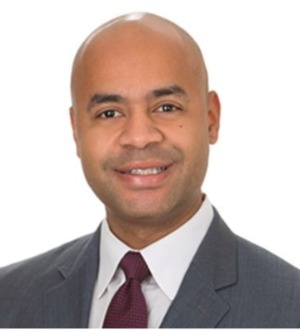Department of Labor Deflates the 80/20 Rule & Inflates the Tip Pool
Executive Summary: On Monday, October 7, 2019, the Department of Labor (DOL) proposed a new 80/20 rule and tip pooling regulation. First, the proposed regulation, if finalized, will permit employers to take a tip credit regardless of the amount of non-tip generating work (such as cleaning tables or folding napkins) a tipped employee performs as long as it is performed contemporaneously with his/her tipped duties, or within a reasonable time immediately before or after performing tipped duties. Second, the proposed regulation eliminates some regulatory restrictions regarding tip pooling when the employer does not take a tip credit. If the proposed rule is finalized, employers who do not take a tip credit will be permitted to include “back-of-the-house” employees who usually do not receive tips (such as cooks and dishwashers) as part of a tip pool. Lastly, the existing rule prohibiting employers from keeping employees’ tips or participating in tip-pooling arrangements will remain.
Background: After Congress passed the Consolidated Appropriations Act 2018, which amended section 3(m) of the Fair Labor Standards Act (FLSA), employers have been waiting for the DOL to issue a new rule on the tip pooling amendments and tip credit applications. Under the existing rules, employees are entitled to receive at least the federal minimum wage from their employers. However, the FLSA allows employers to apply a “tip credit” towards reaching that direct minimum wage amount by counting a limited amount of tips from their tipped employees. These “tipped employees” are those who customarily and regularly receive more than $30 per month in tips. But if the tipped employee engages in non-tip generating work, like cleaning and prep work, for more than 20 percent of the shift, that employee is entitled to the full direct payment of the federal minimum wage without tip credit deductions.
The 80/20 rule has forced employers to pay the full minimum wage to employees who also garnered pooled or individual tips. Accurate recordings of time spent on tip generating vs. non-tip generating work is a hotbed for much litigation and a primary reason employers wanted further guidance from the DOL. The DOL admitted that the 80/20 rule is “difficult for employers to administer and causes confusion.” Now, the newly proposed rules would authorize an employer to apply a tip credit regardless of the amount of time that a tipped employee performs non-tip generating work during the shift, so long as the work is performed “contemporaneously with” the employee’s tipped duties, “or for a reasonable time immediately before or after performing the tipped duties.”
Current federal law requires tipped employees retain all their tips unless their tips are distributed through a valid tip pool. Those allowed to share in the tip pool are limited to tipped employees, regardless of whether their employer uses a tip credit as part of their compensation. Currently, a tip pool may not, “for any purposes,” include employers, “including allowing managers or supervisors to keep any portion of the employees’ tips.” The new proposed rule does not change these tip pooling procedures for employers who do take a tip credit—they may continue to have a traditional tip pool that is exclusively for “employees who customarily and regularly receive tips.” The DOL’s proposal also stands firm on its previously held position that employers, managers, and supervisors may not keep or share in the tips or pooled tips of its employees.
However, the newly proposed rule would expand the tip pool for employers who do not take a tip credit. Back-of-the-house employees, who do not traditionally receive direct tips, would be able to participate in and receive a cut from the tip pool. The DOL explained back-of-the-house “employees [also] contribute to the overall customer experience, but may receive less compensation than their traditionally tipped co-workers.” The DOL stated that it hopes this proposal will “help decrease the wage disparities” between the traditional tipped and non-tipped workers—an issue that many employers are battling with in trying to fill back-of-the-house positions.
Employers’ Bottom Line: If finalized, the DOL’s newly proposed rule will bring clarity to the 80/20 debate and foreclose some of the related litigation. Additionally, employers who do not take a tip credit may be able to make back-of-the-house positions more attractive by allowing those employees to receive additional income through tips. Note, employers should consider the laws of the states in which they do business and whether they have adopted any rules similar to or more stringent than the proposed federal 80/20 and tip pooling rule. The DOL’s proposed rules are not yet final and will be available to the public for review and comment for 60 days, until December 9, 2019.
If you have any questions regarding this issue or other wage and hour issues, please contact the authors of this Alert, Luis Santos, lsantos@fordharrison.com, partner in FordHarrison’s Tampa office. You may also contact any member of FordHarrison’s Restaurant Industry or Wage/Hour practice groups or the FordHarrison attorney with whom you usually work.



















